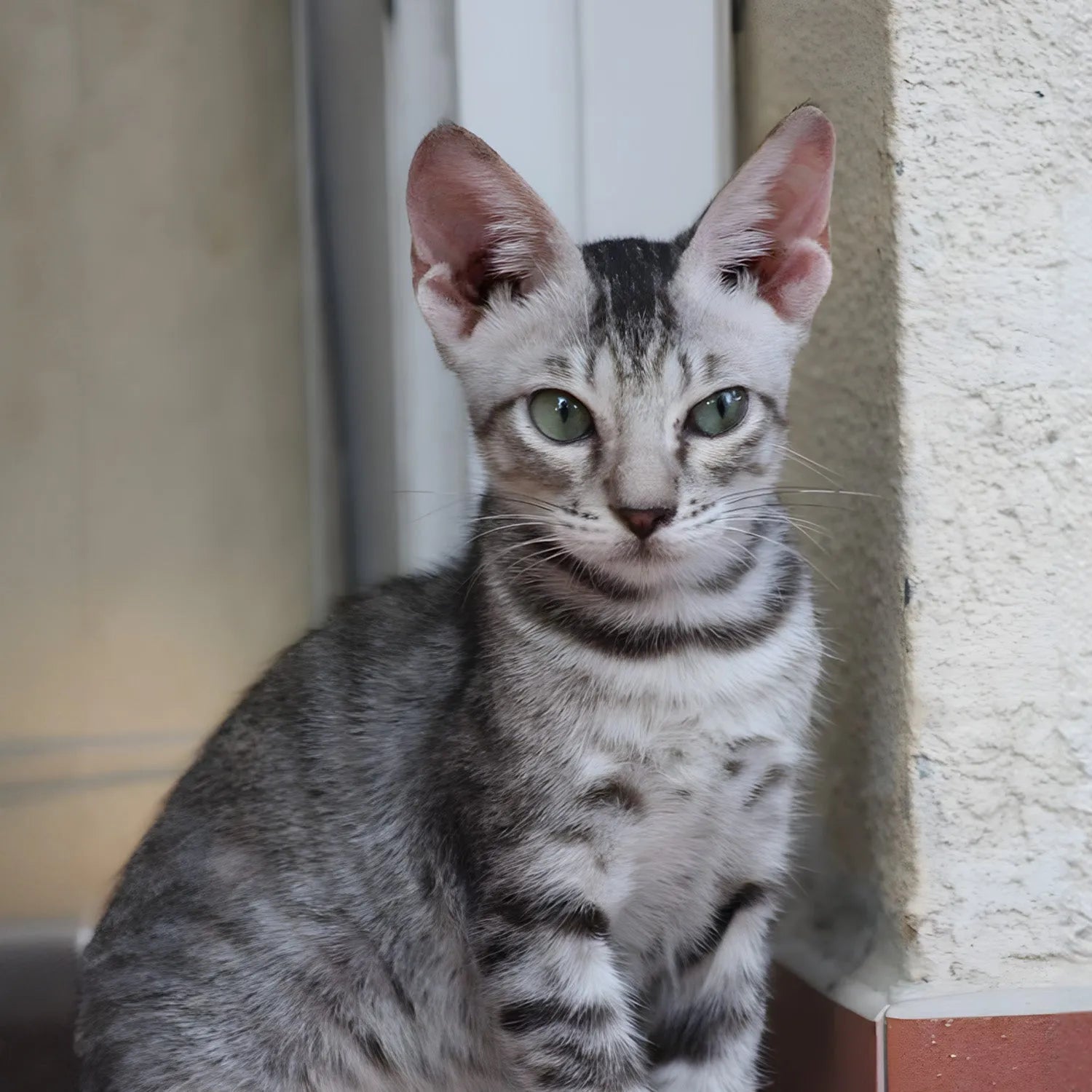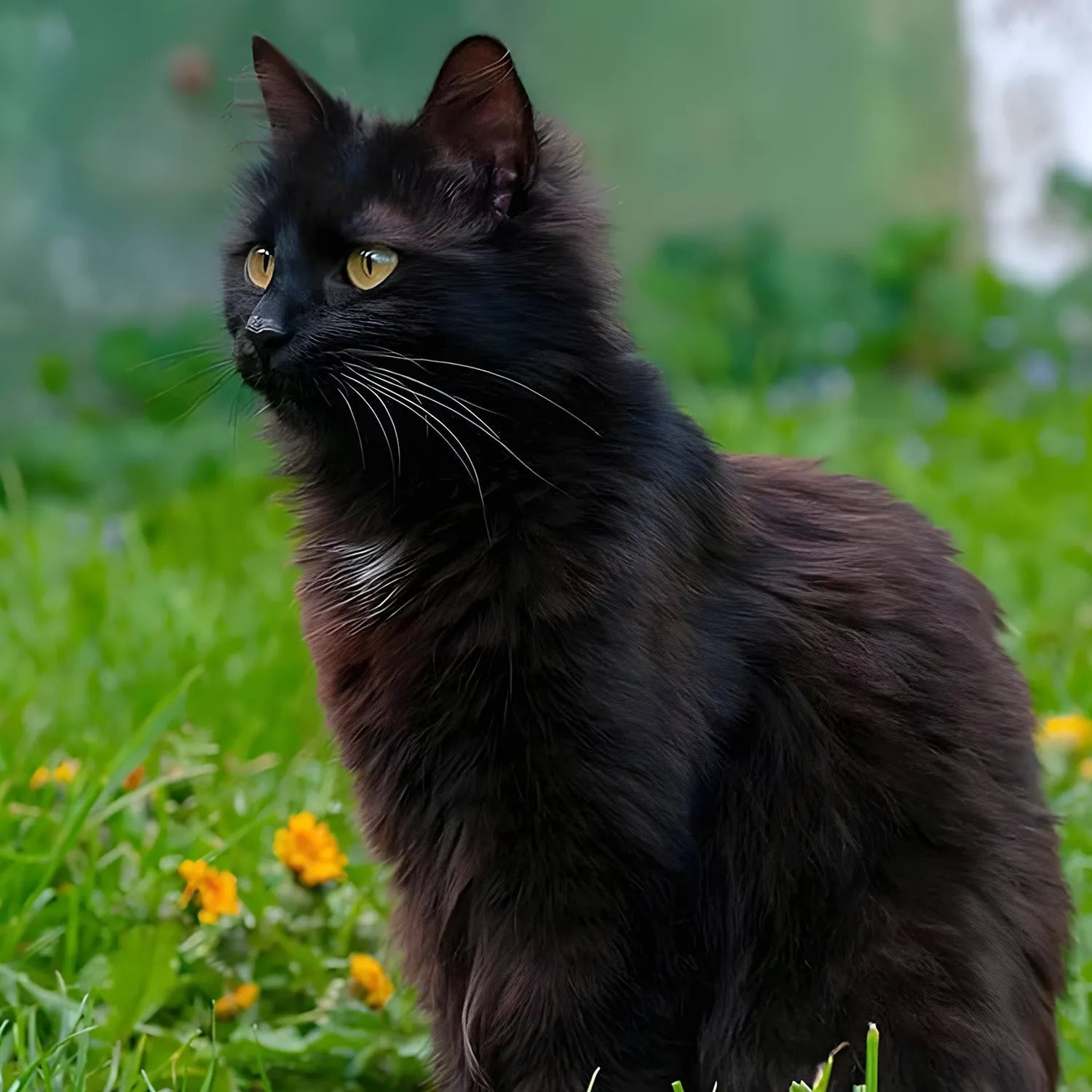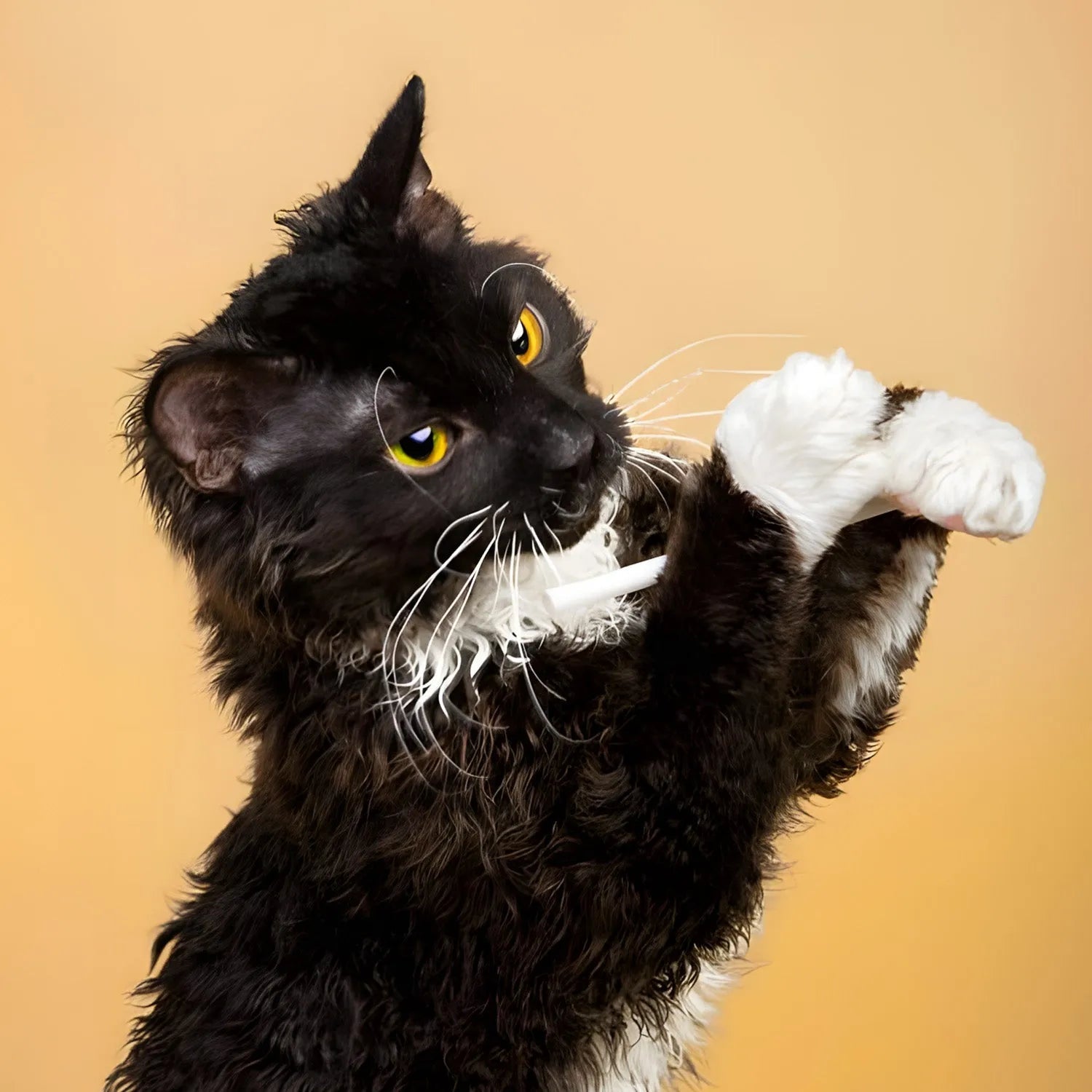Turkish Van: The Water-Loving, Playful Feline
Introduction
The Turkish Van is a fascinating and unique breed, famously known for its love of water and stunning, semi-longhaired coat. Originating from the Lake Van region of Turkey, this cat is often called the "swimming cat" due to its unusual affinity for water. In addition to this quirky trait, the Turkish Van is also known for its playful, energetic, and affectionate personality, making it a wonderful companion for families and individuals alike. With its distinctive markings and lively demeanor, the Turkish Van is a cat that brings both beauty and entertainment into any home. In this blog, we’ll explore the Turkish Van cat’s lifestyle, behavior, grooming needs, and how it interacts with humans and other pets.
Ratings (1-5)
-
Environmental Adaptability: 4
-
Food Consumption: 4
-
Need for Companionship: 5
-
Trainability: 4
-
Tolerance of Children: 5
-
Ease of Domestication: 4
History and Origins
The Turkish Van cat has a long history that dates back thousands of years, with its roots in the Lake Van region of Turkey. This breed has been depicted in ancient art and folklore, often revered for its beauty and unique traits. The Turkish Van’s striking appearance and its fondness for water set it apart from other breeds, and it has become a symbol of good fortune and prosperity in Turkish culture.
The breed was first introduced to the West in the 1950s when a pair of Turkish Van cats were brought to England by British photographers Laura Lushington and Sonia Halliday. They were fascinated by the breed’s unique look and behavior, particularly its love of swimming. Breeders in England worked to establish the Turkish Van as a recognized breed, and it eventually gained recognition from The International Cat Association (TICA) and the Cat Fanciers’ Association (CFA).
Today, the Turkish Van remains relatively rare, but its distinctive traits and charming personality continue to attract cat lovers worldwide.
Physical Characteristics and Colors
The Turkish Van is a large, muscular cat with a sturdy build and a semi-longhaired coat. One of the most striking features of the Turkish Van is its unique coloration, known as the "Van pattern." This pattern consists of a predominantly white body with color restricted to the head and tail. The contrast between the pure white body and the colored markings gives the Turkish Van a bold and distinctive appearance.
Common Turkish Van coat colors include:
-
Red: Deep red markings on the head and tail.
-
Cream: Soft, pale cream markings.
-
Black: Rich black markings.
-
Blue: Soft gray-blue markings.
-
Tortoiseshell: A combination of black, red, and cream patches on the head and tail.
The Turkish Van’s coat is soft, water-resistant, and semi-long, giving it a luxurious, plush feel without requiring the high maintenance of some other longhaired breeds. Their large, expressive eyes can be blue, amber, or odd-eyed (one blue and one amber), adding to their striking appearance.
Lifestyle and Behavior
The Turkish Van is a highly active and playful cat. These cats are full of energy and love to explore their surroundings, climb, jump, and play with interactive toys. They are known for their intelligence and curiosity, always eager to investigate new objects or environments. Turkish Vans thrive on physical and mental stimulation, so it’s important to provide them with plenty of toys, climbing trees, and opportunities to engage in active play.
One of the most unique traits of the Turkish Van is its love of water. Unlike most cats, Turkish Vans enjoy playing in water, and many even like to swim. This behavior likely stems from the breed’s origins in the Lake Van region, where these cats may have adapted to swimming in the lake. Owners of Turkish Vans often find their cats playing with water in the sink, bathtub, or any available water source.
In addition to their playful nature, Turkish Vans are also affectionate and enjoy spending time with their human companions. They form strong bonds with their owners and are known for their loyalty and devotion. While they are not typically "lap cats," Turkish Vans will often stay close to their owners, following them from room to room and seeking attention when they want it.
Trainability and Intelligence
Turkish Vans are highly intelligent cats and can be trained to follow commands, perform tricks, and even walk on a leash. They are quick learners and enjoy mental challenges, making them ideal candidates for training sessions that involve problem-solving and interactive play. Turkish Vans respond well to positive reinforcement techniques, such as treats and praise, and they enjoy games that challenge their minds.
Because of their intelligence, Turkish Vans need regular mental stimulation to prevent boredom. Puzzle toys, interactive feeders, and training sessions that involve problem-solving are great ways to keep their minds sharp. These cats are eager to engage in activities that challenge their intelligence, and they enjoy learning new tricks or commands.
Training sessions with Turkish Vans should be fun and engaging, as these cats thrive on attention and enjoy showing off their abilities. Their playful nature and intelligence make them excellent candidates for more advanced training, such as leash walking or more complex tricks.
Social Behavior and Human Interaction
Turkish Van cats are incredibly social and affectionate animals. They form strong bonds with their human family members and are known for being loyal, loving, and always eager to be near their owners. These cats are not shy about seeking attention and will often nuzzle, paw, or vocalize when they want to be petted or played with.
Turkish Vans thrive on human interaction and do not like being left alone for long periods. They are happiest in homes where someone is around for most of the day, or they have other pets to keep them company. These cats are known for their love of physical contact and will often curl up in their owner’s lap or snuggle beside them in bed.
Their social nature also extends to visitors and strangers. Turkish Vans are generally friendly and outgoing, greeting guests with curiosity and enthusiasm. They are not shy or reserved, making them excellent companions for homes with a lot of activity or visitors.
Compatibility with Children and Other Pets
Turkish Van cats are excellent companions for children due to their playful and tolerant nature. They enjoy interactive play and are generally patient with children’s antics, provided they are treated with respect. Turkish Vans are gentle and affectionate, making them ideal pets for families with young kids who want an active and loving companion.
In addition to being good with children, Turkish Vans also tend to get along well with other pets, including dogs. Their confident and friendly nature allows them to integrate well into multi-pet households, and they often enjoy the company of other animals. Proper introductions are important, but Turkish Van cats are generally accepting of new furry family members and are known for their ability to get along with both cats and dogs.
Grooming and Care
Despite their semi-longhaired coats, Turkish Van cats are surprisingly low-maintenance when it comes to grooming. Their coats are soft and water-resistant, and they do not mat easily. Weekly brushing is usually sufficient to remove loose hairs and keep their coat looking shiny and healthy. During shedding seasons in the spring and fall, more frequent brushing may be necessary to manage their coat.
In addition to regular brushing, Turkish Van cats require routine dental care, ear cleaning, and nail trimming to maintain their overall health. Their low-maintenance grooming needs make them ideal for owners who want a beautiful yet easy-to-care-for cat.
Health and Lifespan
Turkish Van cats are generally healthy, but like all breeds, they can be prone to certain genetic health conditions. Some common health concerns include hypertrophic cardiomyopathy (HCM), a heart condition, and deafness, particularly in white-coated, blue-eyed individuals. Responsible breeders screen for these conditions to reduce the risk of passing them on to future generations.
Regular veterinary check-ups, a balanced diet, and maintaining a healthy weight are essential to keeping your Turkish Van cat in good health. With proper care, Turkish Van cats typically live 12-15 years or more, making them long-term companions for any family.
Environmental Adaptability
Turkish Van cats are adaptable and can thrive in a variety of living environments, whether in a small apartment or a larger home. They are particularly well-suited to indoor living, where they can enjoy a calm and predictable routine. Because of their social and affectionate nature, Turkish Van cats do best in homes where they have plenty of interaction with their human family members or other pets.
Because of their playful and curious nature, Turkish Van cats appreciate having access to climbing trees, interactive toys, and plenty of opportunities for play. While they can adapt to most living situations, they are happiest in environments where they receive plenty of attention and stimulation.
Feeding Requirements
A balanced diet is crucial for maintaining the health and energy levels of Turkish Van cats. High
-quality cat food that is rich in protein is recommended to support their muscular build and overall well-being. Fresh water should always be available. Because Turkish Van cats are active and energetic, it’s important to monitor their food intake to ensure they are receiving the proper nutrition to support their activity levels.
Consult your veterinarian for specific dietary recommendations based on your cat's age, weight, and health needs. Regular play sessions and activities that encourage physical movement can also help keep your Turkish Van healthy and fit.
Conclusion
The Turkish Van is a unique, playful, and affectionate breed that offers a perfect combination of energy, intelligence, and loving companionship. Their strong bonds with their human companions, combined with their active and outgoing personalities, make them wonderful pets for families, individuals, or anyone looking for a lively and loving cat. If you're searching for a feline friend that will bring joy, entertainment, and affection to your home, the Turkish Van may be the perfect fit.
For more information about other cat breeds and pet care tips, stay tuned to our blog!
References:
-
Davis, M. (2021). "The Water-Loving Turkish Van Cat." *Journal of Feline Studies*, 35(3), 215-230.
-
Thompson, A. (2020). "Caring for Your Turkish Van: A Comprehensive Guide." *Cat Lover’s Magazine*, July issue, pp. 25-33.
-
Harris, E. (2019). "Health and Wellness in Turkish Van Cats." *Veterinary Journal*, 79(2), 123-137.


